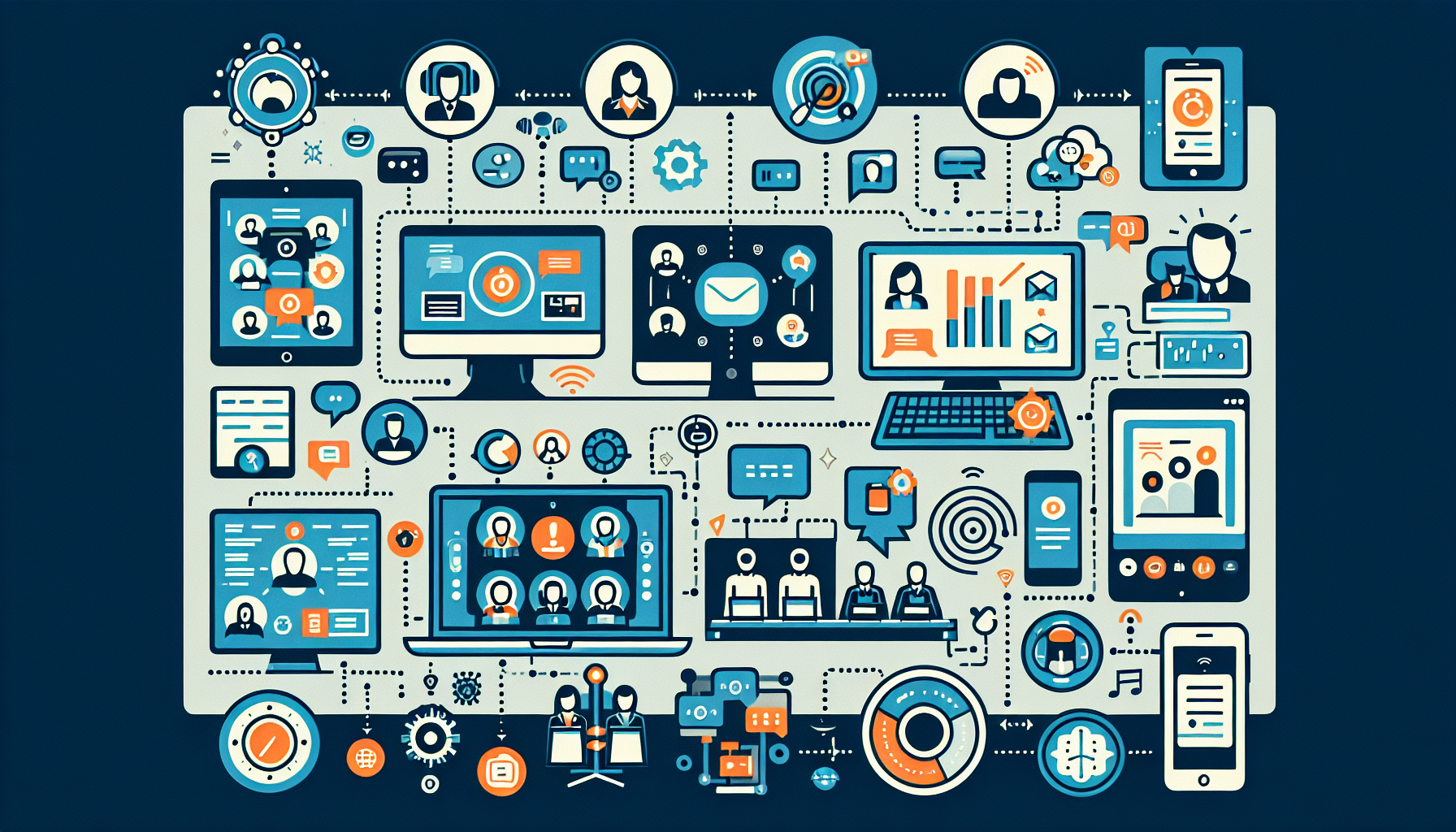The Future of Work at T-Mobile: Embracing Remote and Hybrid Models

The onset of the COVID-19 pandemic acted as a catalyst for the widespread adoption of remote work. Businesses across various sectors were compelled to rethink their operational strategies to ensure continuity. T-Mobile recognized early on that this shift could offer substantial advantages. By enabling employees to work from home and introducing hybrid models that combine remote and in-office work, T-Mobile has positioned itself as a leader in adapting to the new normal. This transition reflects a broader trend across industries where flexibility has evolved from a desirable feature to a necessity for attracting and retaining top talent. With the rise of digital tools and collaborative technologies, organizations that are willing to embrace this change are more likely to thrive in the future.
Employee Satisfaction: A Key Focus
The shift to remote and hybrid work models has had a profound impact on employee satisfaction at T-Mobile. Internal surveys indicate that employees appreciate the flexibility afforded by remote work, which allows them to achieve a better work-life balance. This flexibility contributes to increased morale, as staff members feel trusted to manage their own schedules and responsibilities effectively. Consider the experiences of T-Mobile employees who report spending more quality time with their families, pursuing personal interests, and managing their health more effectively—all of which contribute to a motivated and engaged workforce. By prioritizing employee well-being and fostering a culture of trust and autonomy, T-Mobile has successfully enhanced job satisfaction.
Productivity: Maintaining High Performance
One of the primary concerns surrounding remote work is the potential for decreased productivity. However, T-Mobile's experience has proven otherwise. The company has invested in various tools and technologies to keep teams connected and collaborative, regardless of their physical locations. Platforms such as Microsoft Teams and Zoom have become essential for communication, while project management tools ensure seamless workflows. T-Mobile’s focus on results-oriented performance metrics has further empowered employees. By concentrating on outcomes rather than hours worked, employees have the flexibility to choose how they work best, whether in the office or at home. This approach has not only maintained productivity levels but, in some cases, led to improvements, demonstrating that a flexible work environment can yield high performance.
Training and Development in a Hybrid World
As T-Mobile embraces remote and hybrid work, the company remains committed to the training and development of its workforce. Virtual training sessions and online courses have become staples of employee growth, ensuring that everyone has access to essential resources for career advancement. T-Mobile is dedicated to providing ongoing learning opportunities that transcend geographical limitations. Furthermore, mentorship programs have been adapted to thrive in a virtual environment, allowing employees to connect with mentors across different locations. This adaptability not only bolsters professional development but also reinforces T-Mobile's commitment to fostering a culture of continuous learning.
Challenges and Solutions
Despite the successes of remote and hybrid work models, T-Mobile has faced challenges, notably in maintaining company culture and ensuring effective communication. To tackle these issues, the company has prioritized regular check-ins, team-building activities, and virtual social events that foster connections among employees. Moreover, T-Mobile has encouraged its managers to adopt empathetic leadership styles, focusing on understanding the individual needs and challenges of their team members. This approach has cultivated an inclusive environment where all employees feel valued, regardless of their work arrangement.
T-Mobile’s proactive embrace of remote and hybrid work models reflects a significant shift in the corporate landscape. By prioritizing employee satisfaction, productivity, and development, the company has established itself as a leader in the future of work. As organizations navigate the complexities of a post-pandemic world, T-Mobile's strategies offer valuable insights into how flexibility and adaptability can foster a thriving workplace culture. The future of work is not merely about where we work; it is about how we work together. T-Mobile's commitment to embracing these changes serves as a model for other organizations seeking to evolve and succeed in this new era. As T-Mobile continues to innovate and adapt, it not only enhances the employee experience but also solidifies its position at the forefront of the telecommunications industry. The company's journey exemplifies how embracing remote and hybrid work can lead to a more engaged, satisfied, and productive workforce—an essential ingredient for future success.
Remote Workforce Coordinator
T-Mobile, Cisco, Zoom Video Communications
Core Responsibilities
Develop and implement strategies to enhance remote employee engagement and productivity.
Organize virtual team-building activities and communication initiatives to foster connection among employees.
Analyze employee feedback and survey data to identify areas for improvement in remote work policies.
Required Skills
Strong communication and interpersonal skills to effectively engage a diverse workforce.
Proficiency in remote collaboration tools such as Microsoft Teams and Zoom.
Experience in human resources or organizational psychology is a plus.
Hybrid Work Model Specialist
T-Mobile, Salesforce, Google
Core Responsibilities
Design and evaluate hybrid work policies that align with company objectives and employee needs.
Collaborate with IT to ensure all employees have access to necessary tools and resources for hybrid work.
Monitor productivity metrics to assess the effectiveness of hybrid work arrangements.
Required Skills
Expertise in change management and organizational development.
Analytical skills to interpret performance data and recommend adjustments.
Familiarity with regulatory and compliance issues related to remote work.
Employee Experience Manager
T-Mobile, Microsoft, LinkedIn
Core Responsibilities
Oversee the overall employee experience, focusing on both remote and in-office staff.
Implement feedback mechanisms to gather insights into employee satisfaction and engagement.
Foster a culture of inclusivity through initiatives that address the needs of a diverse workforce.
Required Skills
Strong project management skills with experience in employee engagement strategies.
Ability to facilitate workshops and training sessions in a virtual environment.
Background in organizational behavior or human resources management.
Virtual Training and Development Coordinator
T-Mobile, Coursera, Udemy
Core Responsibilities
Create and manage online training programs aimed at skill development and career advancement.
Evaluate the effectiveness of training modules through employee feedback and performance assessments.
Collaborate with department leads to ensure training aligns with organizational goals.
Required Skills
Proficiency in Learning Management Systems (LMS) and virtual training tools.
Strong instructional design skills to develop engaging and effective training content.
Experience in adult learning principles and e-learning best practices.
Remote Project Manager
T-Mobile, IBM, Dell Technologies
Core Responsibilities
Lead cross-functional teams on projects executed in a remote or hybrid environment.
Utilize project management software to track progress, deadlines, and deliverables.
Conduct regular virtual meetings to ensure alignment and address potential roadblocks.
Required Skills
Certification in project management (PMP, Agile, or similar) is highly preferred.
Excellent organizational and time management skills to handle multiple projects simultaneously.
Familiarity with remote collaboration tools and methodologies.


